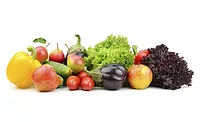Researchers Explore Food Safety of Recycled Human Waste as Fertilizer

Credit: James Baltz (jimbob63) via Unsplash
A recent study has explored the potential of recycling human waste for use as a food-safe, sustainable fertilizer. The findings suggest that the risk of pharmaceuticals entering foods from human waste compost is low.
Nitrogen and phosphorous are essential nutrients for healthy plant growth in crop production. At present, however, the addition of nitrogen and phosphorous to synthetic fertilizers is unsustainable. Rich in nitrogen and phosphorous, human waste has shown potential as a novel recycled fertilizer, and it could be a possible solution that supports a circular food economy.
The research, published in peer-reviewed journal Frontiers in Environmental Science, was conducted by a team at the University of Hohenheim in Stuttgart, Germany. The study explored the human health risk posed by the contamination of food crops by pharmaceutical compounds in human waste compost.
In the study, researchers applied the compost to cabbage crops and analyzed the presence of pharmaceuticals in the plants. The researchers also analyzed the levels of pharmaceuticals in the compost.
The results of the study showed a low risk risk to human health from pharmaceuticals entering cabbage through human waste compost, as only non-edible parts of the plants had taken up the pharmaceuticals at significant levels. Ibuprofen and carbamazepine were detectable in the edible parts of the cabbages at such low concentrations that it would require eating more than half a million cabbage heads to accumulate a dose equivalent to one pill.
Additionally, the researchers screened for the presence of 310 chemicals in the fecal compost, including 11 pharmaceuticals, rubber additives, flame retardants, ultraviolet (UV) filters, corrosion inhibitors, and insect repellants. Only 6.5 percent of the chemicals were present above the limit of detection in the compost.
While the researchers believe that human waste has potential as a food-safe recycled fertilizer, more research must be done on other possible food safety and environmental risks.
Looking for quick answers on food safety topics?
Try Ask FSM, our new smart AI search tool.
Ask FSM →








